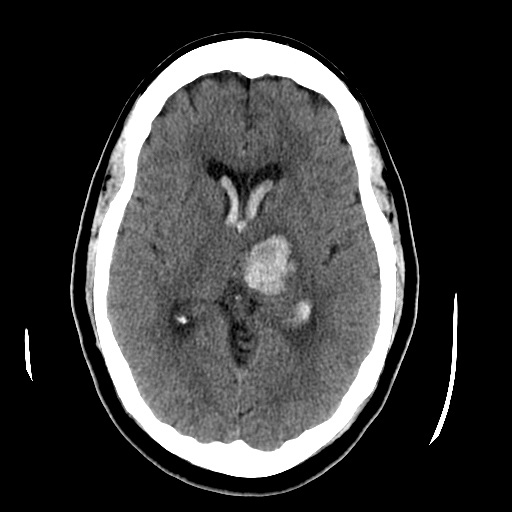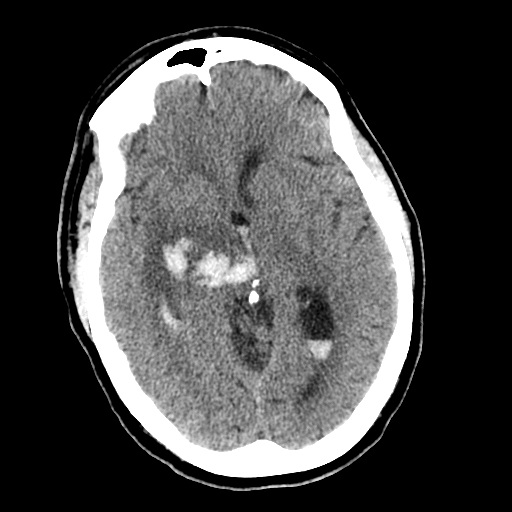Acute Downgaze Deviation
- Sudden sustained downward deviation of both eyes
-
Common causes
- Acute obstructive hydrocephalus from aqueductal stenosis
- Malfunction of a lateral or third ventricular shunt
- Thalamic infarct or hemorrhage

-
Uncommon causes
- Seizure
- Hepatic encephalopathy
- Isolated benign developmental disorder in otherwise normal neonates
- Core clinical feature
-
Possible accompanying neuro-ophthalmic features
- Impaired upgaze
- Convergence retraction on attempted upgaze
- Light-near dissociation of pupils
- Third nerve palsy
- Skew deviation
- Fourth cranial nerve palsy
- Torsional nystagmus
- Esotropia
- Exotropia
- Papilledema
-
Possible accompanying neurologic features
- Hemiparesis
- Hemihypesthesia
- Gait ataxia
- Aphasia
- Tonic-clonic movements
- Impaired consciousness
- Vomiting
- Electroencephalographic signs of epilepsy
-
Imaging features
- Pineal, thalamic, or midbrain lesion
- Dilated lateral and/or third ventricles

- Abnormal liver chemistries and serum ammonia that suggest hepatic encephalopathy
- Nothing
- Exclude other clinical features of dorsal midbrain syndrome (See Dorsal Midbrain Syndrome)
- Order brain CT or MRI to rule out obstructive hydrocephalus, thalamic, midbrain, and pineal lesions
- Consider seizure or metabolic cause if imaging is negative
-
Tip: if this is a manifestation of a benign developmental disorder in otherwise normal neonates, there should be no accompanying neuro-ophthalmic abnormalities
- Depends on the underlying cause
- Pineal, thalamic, and midbrain lesions must be managed appropriately
- Shunt malfunction and aqueductal stenosis must be promptly relieved
- Spontaneous resolution will occur in otherwise normal neonates